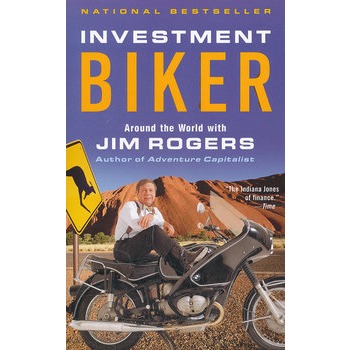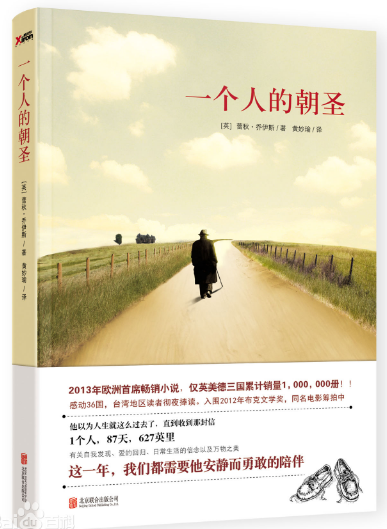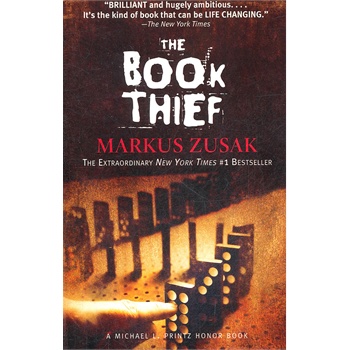容推荐
Legendary investor Jim Rogers gives us his view of the world on a twenty-two-month, fifty-two-country motorcycle odyssey in his bestselling business/adventure book, Investment Biker, which has already sold more than 200,000 copies.
Before you invest another dollar anywhere in the world (including the United States), read this book by the man Time magazine calls “the Indiana Jones of finance.”
Jim Rogers became a Wall Street legend when he co-founded the Quantum Fund. Investment Biker is the fascinating story of Rogers’s global motorcycle journey/investing trip, with hardheaded advice on the current state and future direction of international economies that will guide and inspire investors interested in foreign markets.
作者简介
Jim Rogers grew up in Demopolis, Alabama, and got started in business at the age of five, selling peanuts. He graduated from Yale University and has a degree in philosophy, politics, and economics from Oxford University. After a career as a hedge fund manager and investor, he now periodically teaches finance at Columbia University, and appears regularly on the CNBC cable network.
Amazon.com
Jim Rogers became a Wall Street legend when he and George Soros founded the Quantum Fund. This is the fascinating story of his 1990 investing trip around the world by motorcycle, with many tidbits of hard-headed advice for investing in foreign markets. --This text refers to an out of print or unavailable edition of this title.
From Publishers Weekly
Amazon.com
Jim Rogers became a Wall Street legend when he and George Soros founded the Quantum Fund. This is the fascinating story of his 1990 investing trip around the world by motorcycle, with many tidbits of hard-headed advice for investing in foreign markets. --This text refers to an out of print or unavailable edition of this title.
From Publishers Weekly
Those wanting to make a killing on the Botswana stock exchange should pass up this book. Combining a travel narrative with economic advice, Rogers, who teaches business at Columbia, recounts his 20-month global motorcycle tour with his "tall, leggy and blonde" 23-year-old girlfriend, Tabitha. As the two pass through a region, he sizes up the local economy and recommends investment strategies. Often Rogers''s tips seem on the mark, as in Eastern Europe and Asia. Yet for other places, Africa in particular, he appears uninformed. Predicting Zaire''s imminent collapse, Rogers declares, "Zaire hasn''t had its civil war yet," ignoring the Congo crisis of 1960-1965. Such inaccuracies mar what is otherwise an entertaining and unique world tour. Overall, the intended breezy blend of business and travel instead feels like the zigzagging of a man who rarely leaves his preconceptions behind, no matter what lies in front of him. Author tour.
Copyright 1994 Reed Business Information, Inc. --This text refers to an out of print or unavailable edition of this title.
From Library Journal
Rogers, a notable Wall Street financier/investor who retired at age 38 after making a fortune, is a born risk-taker. In 1990 he took the biggest risk of his life by setting out on a BMW motorcylce to circumnavigate the globe, accompanied by his girlfriend. The journey lasted 20 months; the couple traveled more than 60,000 miles across 51 countries on six continents. Why did Rogers do it? Quite simply, to see the world. He offers insightful commentary into the various places he visited both as a savvy tourist and a knowledgeable investor. He found several countries ripe for investment opportunities (notably China, South Africa, and New Zealand) and determined others, in the parlance of Wall Street, to be a "short sale." Some of his analysis is not original (e.g., his observations that the United States is becoming a "statist," quasisocialist state), but much of what he has to say is thought-provoking. Recommended for all public libraries with large nonfiction collections.
--Richard Drezen, formerly with Merrill Lynch Lib., New York
Copyright 1994 Reed Business Information, Inc. --This text refers to an out of print or unavailable edition of this title.
From Booklist
There''s something about a motorcycle that seems to arouse a rebellious freedom and maverick wanderlust. Accompanied by a friend, Rogers, a successful mutual-fund manager who retired before he turned 40 and continued to invest well on his own, recently completed a 20-month, 51-country, 57,354-mile around-the-world trek on a BMW bike. The result is this unique and first-rate travelogue. Rogers provides fascinating sketches of the people and places he visited, but in addition to--and sometimes in spite of--the colorful scenery, he also notes the per capita income, speculates on the future price of land, analyzes the local economy, and uncovers opportunities to be exploited. Throughout, Rogers rails against statism, preferring his economics like his travel: unfettered and freewheeling. Tales of Rogers'' trip have already appeared in publications like Barron''s and Town and Country, so readers will be looking for this book. David Rouse --This text refers to an out of print or unavailable edition of this title.
From Kirkus Reviews
A strange work of travel writing that might well have been entitled International Investment and the Art of Motorcycle Maintenance. Motorcycle enthusiasts and investors interested in predictions about the world economy will enjoy this account by fast-track biker and financier Rogers of his 20-month world odyssey in search of financial enlightenment. In 1980, he retired from Wall Street, a millionaire at the age of 37, intent on fulfilling his dream of riding his motorcycle around the entire planet. After years of battling with Communist bureaucrats in both China and the Soviet Union, Rogers crossed China by motorcycle in 1988 and received permission in 1989 to cross Siberia. With his girlfriend, he finally set off in March 1990 for a world tour, commencing from Ireland, traversing six continents, and finishing in Texas. Rogers''s focus is economic; where other writers might see culture, scenery, or people, he sees labor, resources, and capital. Whether in Japan, New Zealand, or Mexico, his theme is almost obsessively the same: The enemy of efficiency and productivity is ``statism'''' (excessive regulation) in all its socialist, social democratic, fascist, and Communist variants. Rogers is bullish about countries, like those in South America, where he sees statism on the wane, while he judges nations that impose currency controls and trade restrictions to be bad investment risks. Lamenting what he sees as the US''s unsound currency, ballooning budget deficits, and increasingly statist orientation, Rogers, more bearishly than many will like, calls this country ``an obvious short sale.'''' Surprisingly uninformative about the many countries Rogers visited, and his tendency to view all societies solely through the prism of libertarian/free-market ideology ultimately proves wearisome. (Author tour) -- Copyright ©1994, Kirkus Associates, LP. All rights reserved. --This text refers to an out of print or unavailable edition of this title.
Review
“The Indiana Jones of finance.” —Time
“Rogers’s advice is sage: Stick with nations where hard-nosed bureaucrats push fiscal reforms, maintain sound currencies, advocate free trade, and stay out of areas best left to the private sector. And Rogers also dishes up ample adventure.”—BusinessWeek
Review
?The Indiana Jones of finance.? ?Time
?Rogers?s advice is sage: Stick with nations where hard-nosed bureaucrats push fiscal reforms, maintain sound currencies, advocate free trade, and stay out of areas best left to the private sector. And Rogers also dishes up ample adventure.??BusinessWeek








